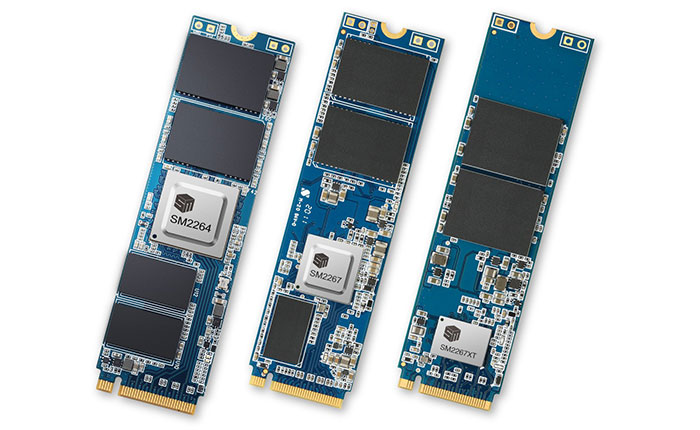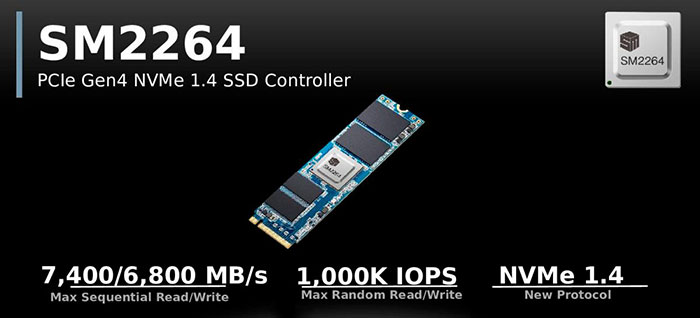Silicon Motion has launched a trio of new consumer SSD controllers. The portfolio has been created to cater for PCIe 4.0 NVMe 1.4 SSD device makers and consists of the SM2264 for performance, SM2267 for mainstream and SM2267XT for value DRAM-less client SSDs.

According to Silicon Motion the new controllers have been designed from the ground up with innovative hardware features implemented, and optimised to maker the most of the PCIe 4.0 interface. As well as the data transfer and access time performance benefits the designs boast, consumers will benefit from advanced error correction, as well as data path and EMI protections.

The premium offering in the lineup is the SM2264 which features a quad-core ARM R8 CPU with four lanes of 16Gb/s PCIe data flow and supports eight NAND channels with up to 1,600MT/s per channel. This controller is built on 12nm and enables high throughput, lower power consumption, and data protection while delivering sequential read/write performance of up to 7,400/6,800MB/s and random read/write speeds of up to 1,000K IOPs. Silicon Motion nots that the SM2264 is tested for the latest and next generation 3D TLC and QLC NAND and is also ideal for automotive, having built-in SR-IOV capability that provides direct, high-speed PCIe interface for supporting to up to eight Virtual Machines. Compare the specs of the SM2264, and its mainstream and value brethren, below.
|
Tech/Product |
SM2267XT |
SM2267 |
SM2264 |
|
Host Interface |
PCIe Gen4 x4 |
PCIe Gen4 x4 |
PCIe Gen4 x4 |
|
PCIe Protocol |
NVMe 1.4 |
NVMe 1.4 |
NVMe 1.4 |
|
NAND Flash Channel |
4 |
4 |
8 |
|
CE/Channel |
4 |
8 |
8 |
|
DRAM |
No DRAM |
Yes |
Yes |
|
Max. Performance |
|||
|
Seq. Read |
3,900 MB/s |
3,900 MB/s |
7,400 MB/s |
|
Seq. Write |
3,500 MB/s |
3,500 MB/s |
6,800 MB/s |
|
Random Read |
500K IOPS (HMB) |
500K IOPS |
1,000K IOPS |
|
Random Write |
500K IOPS |
500K IOPS |
1,000K IOPS |
As the new lineup of controllers has been announced they have already been selected by numerous leading PC OEM and SSD manufacturers for upcoming storage products. The SM2264 is currently sampling to leading customers, meanwhile the SM2267 and SM2267XT, for mainstream and value clients respectively, have entered volume production.













